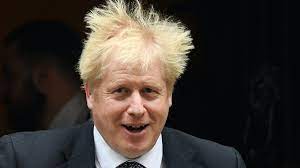Some books on my horizon.
1. The Palace Papers by Tina Brown
I'm not one to read, let alone post about, monarchy books and their effusions. But I'm making an exception
for this one, just because Tina Brown is so damn sharp and smart about anything she covers. As one of the book's blurbs says, "she knows this world better than many who inhabit it." (Also because it strikes me that no Canadian could read this book and continue to imagine that the British monarchy has any relevance to Canada -- a word that, no surprise, does not appear in the book.
Update: maybe once.)
If you can't face the book, there's a good sample of the work Brown does in the Globe and Mail excerpt from last Saturday. And there's also an audio sample in her interview with Kara Swisher at the Sway podcast (if paywalled at the Times, should be available "where you get your podcasts.")
On one point, I hesitantly disagree with Brown. She notes that the unpopularity of Charles harms the monarchy's prospects. (Abolish-the-monarchy types I hang out expect the mere words "King Charles" will put an end to the monarchy all by itself.) But the system always has an "out" monarch to balance the "in" monarch, and a bad member or two to balance the good one. Once Her Majesty dies, and her long-unemployed son is suddenly wrapped in all the power and pomp of the throne, the monarchy machine will surely rehabilitate Charles's image.
2. Origins: A Genetic History of the Americas by Jennifer Raff and The Indigenous Paleolithic by Paulette Steeves
Origins is the latest survey of what's known about the peopling of the Americas by our species. It starts with a long survey of all the previous explanations, informed by the author's acute awareness of the racism and privilege that has typified a lot of archaeological thinking in the past. There's also a lab scientist's eye view of how genetic science actually works on these questions, and an attempt to sort out what is known fairly surely and what's yet to be sorted out in this whole field. I thought it was lively and readable and both sensible and sensitive throughout.
I was left with a feeling, nevertheless, this is a story where the mysteries are fading away. When I made an Ideas documentary about thirty years ago on the peopling of the Americas, it was already pretty clear to the specialists I talked to, not only that all early peoples in the Americas came via north-eastern Asia as part of the human migration from Africa into Eurasia and all over the planet. They also understood by then that at least a few people had reached the Americas south of the great ice cap before the ice had retreated sufficiently for an southbound migration east of the Rockies to be feasible. There was almost no firm evidence for a coastal migration down the Pacific coast, but it already seemed increasingly likely that the coast had to be the prime vector of early migration. Detailed evidence on "the kelp highway" is still slim in Ruff's account, but more than ever, it has to be the opening to the Americas.
How early, however, isn't very well established. And the brand-new genetic evidence Raff reviews, while conclusive about the big picture and strongly suggesting early migration dates barely 20,000 years ago, is still thin on specifics. So lots yet to fill in at the detail level.
I must say this book contrasted with a 2022
Ideas documentary (much more recent than mine!) I recently heard. It
profiles Paulette Steeves, an indigenous archeologist who is moving and insightful about all the maddening challenges and blocks that face an indigenous women practising ancient North American archaeology. I was less persuaded, however, by her conviction that anyone who doubts her ancestors were here in the Americas 130,000 years ago or more must be motivated solely by racism. Ruff is sensitive about prejudiced assumptions, but she's also sensitive to the limits placed by established knowledge. As humans, we're still new everywhere, by archaeological timescales. A tenth of the time Steeves wants to postulate still means the First Nations have been here since the world began, when the rivers were beginning to run and the salmon to swim up them.
3. And Some Meaning-to-Reads
The Summer Trade: A History of Tourism on Prince Edward Island by Alan MacEachern and Edward Macdonald. A history of PEI and tourism, just out.
Jackson's Wars: A.Y. Jackson and the Birth of the Group of Seven by Douglas Hunter. Looks to be a new angle on the painter and the Group. Coming in May.
Canadian Spy Story: Irish Revolutionaries and the Secret Police by David Wilson. Coming in June.
All McGill-Queen's books, I note. Are they doing something right?













